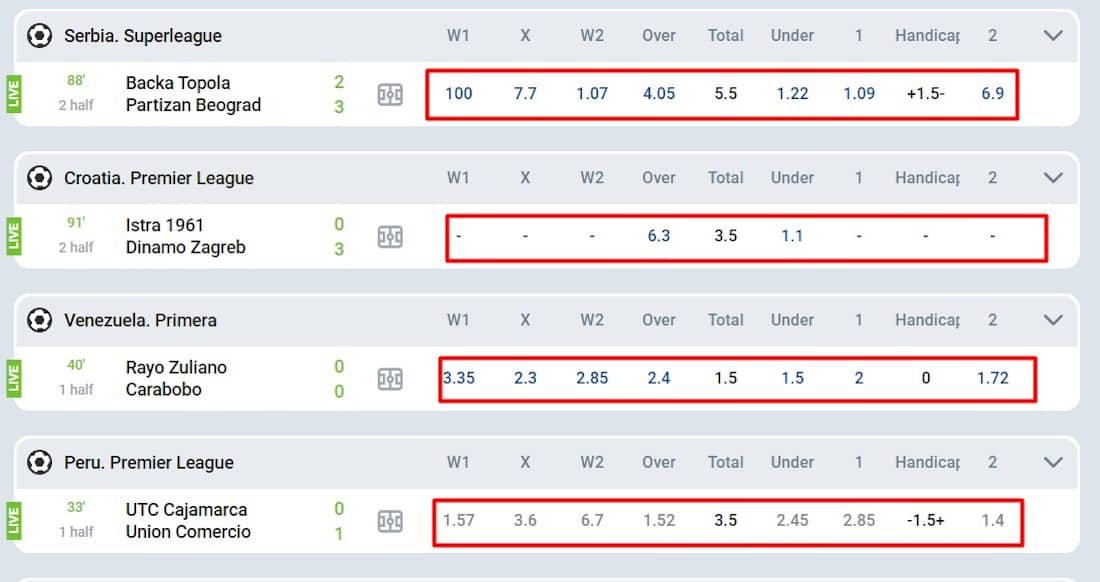How Betting Companies Make Money
Online betting is an increasingly popular pastime, with millions of people around the world logging in to scores of sites to place their bets every day. But how do these companies actually make money? How can they be so sure that they always come out on top when you part with your hard-earned cash? In this blog post, we’ll take a deep dive into the ways in which betting companies generate income and offer insight into why statistically speaking it’s almost always beneficial for them – but not necessarily for you. So if you’ve ever been curious about which tactics are used by online betting sites today, read on for the full picture!

Betting Companies
Betting companies have existed as a form of entertainment around the world for centuries, however advances in modern technology have made it easier than ever before to make money through betting. They have grown rapidly in recent years as a viable form of entertainment, yet how exactly do they make money? The first and most obvious way for these companies to make money is through commission – that is, taking a per centage of gambling winnings from the player. This percentage can vary greatly between companies, but typically ranges from 5-15%. Secondly, companies may offer incentives such as bonuses or VIP schemes which essentially provide them with revenue without taking money directly from players. Thirdly, there are areas of betting which rely on luck rather than skill and whilst some casinos offer a ‘house edge’ this is not always the case. Overall there are numerous methods for how betting companies can generate revenue and make a profit; it’s no wonder why their popularity and profitability continues to rise.

Importance of Odds Compilers
Betting companies make their money by offering a service in which customers can earn money by accurately predicting the outcome of an event. This often includes complicated sports and races with various possible outcomes, and to make all this possible requires someone specialised in understanding how the odds work – that is, an odds compiler. Odds compilers are employed in betting companies to calculate how likely it is that each case will result in success for the customer, which both protects the customer from taking too big a risk and gives them a strong chance of earning big rewards when correct. As part of their role, odds compilers also analyse bookmakers’ margins and how much money they keep from customers and how much they return, to ensure maximum profits for the company and attractive payouts for the users. This direct effect on the company’s bottom line makes odds compilers essential to any betting company wanting to stay profitable.

Balanced Books
As with any business, betting companies make money by balancing their books. They track how much money is spent on winning bets and how much they collect from those who lose their bets. The ultimate goal is to balance the amount of total payouts owed with incoming revenue, leaving just enough to cover expenses like technology and employee salaries. To ensure a balanced book, betting companies may also employ strategies such as adjusting how much they offer in bonuses or incentives or how tight they set their lines. To do this, they track patterns and use sophisticated algorithms to determine how people are likely to bet, making the margins of profit minuscule but consistent. As more data becomes available about trends in sports betting, companies are able to use this information to further perfect their balancing act and gain even more profits from patrons looking to place a wager.
Established Betting Companies
Established betting companies are part of a huge industry that continues to rise increasingly in profits year after year. Many of these betting companies generate their income by allowing customers to place bets on sports and games such as horse racing, football, and even reality television shows. They act as intermediaries between customers with different opinions who all want a piece of the action and help determine who comes out on top. On top of all this, when it comes to how they make money, established betting companies can also collect commissions on each bet placed and offer exclusive promotions to their customers such as bonuses or free bets. It is clear that there are various ways in which these companies make their profits, creating an environment for people to engage with one another about current events or outcomes of a certain event whilst providing a secure platform for customers’ gambling activities.
Tactics Used Today
Online betting sites have drastically evolved in how they approach how betting companies make money. The tactics used today are highly strategic and involve leveraging various platforms such as mobile applications, live streams and virtual reality to create immersive environments for their customers. Customers may also be rewarded with lucrative bonuses and incentives that reward loyalty or courageous bets. Ultimately, these tactics are based on understanding customer behavior and preferences while providing an enjoyable scouting and betting experience that is simple yet intuitive enough to allow customers to easily view the available event markets and quickly place their bet. By supplying its customers with an interactive experience, online betting sites attract more users which increases opportunities for them to generate revenue through various other means such as advertisement revenues.
To conclude, the importance of odds compilers to betting companies cannot be overlooked. Properly assessing risk and ensuring that company books remain balanced is essential for success in the sports betting industry. Especially with established market players and new entrants consistently vying for their piece of the pie, knowing when to bet heavily or when to be conservative becomes a crucial part of betting strategy. That’s why it is ultimately up to the meticulous work of odds compilers to evaluate and determine any course of action that can help create practical winnings for a betting firm’s clients. As these professionals continue their unique role, hopefully we can look forward to more efficient, fair, and just practices being adopted across the industry.
